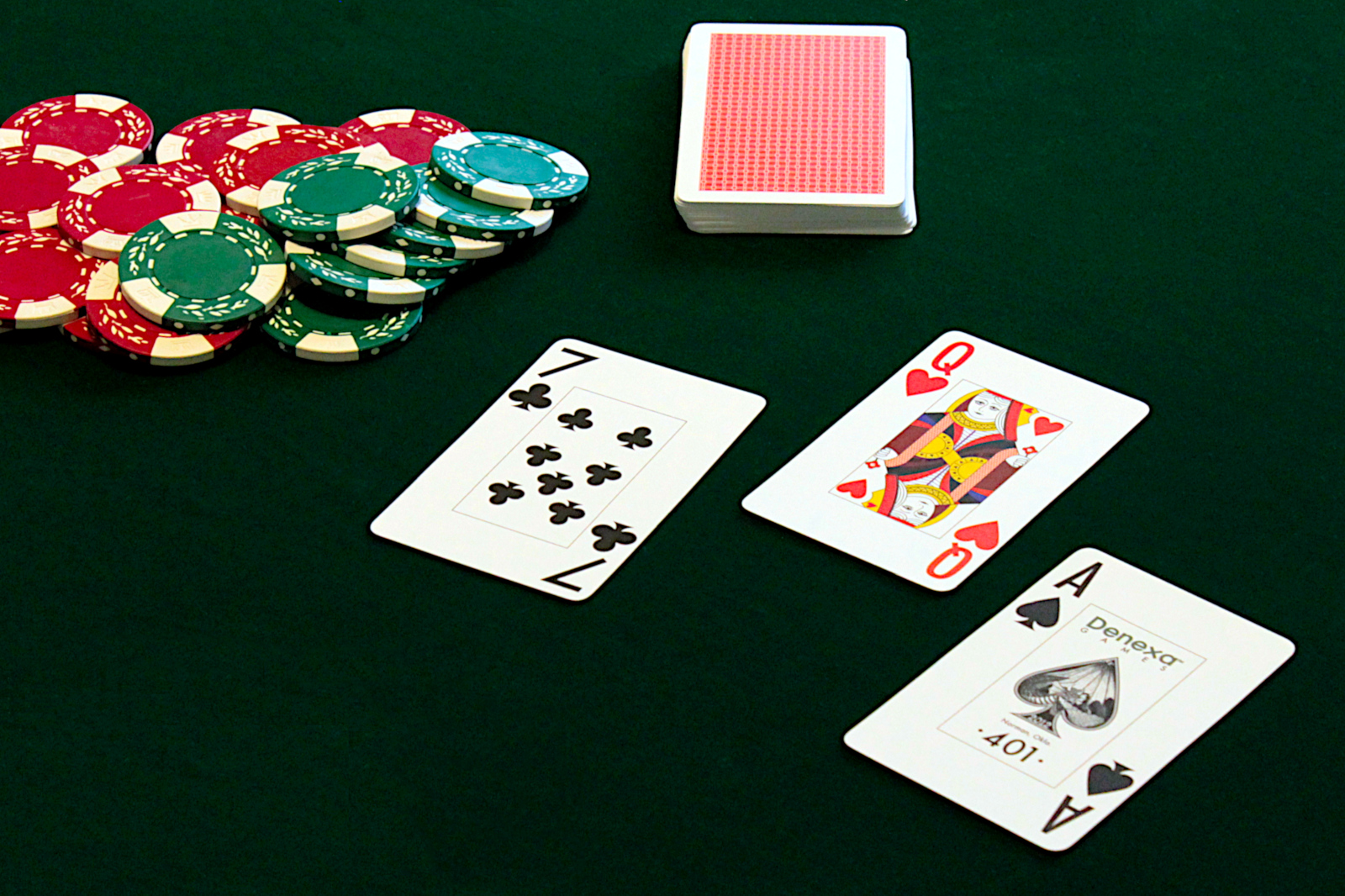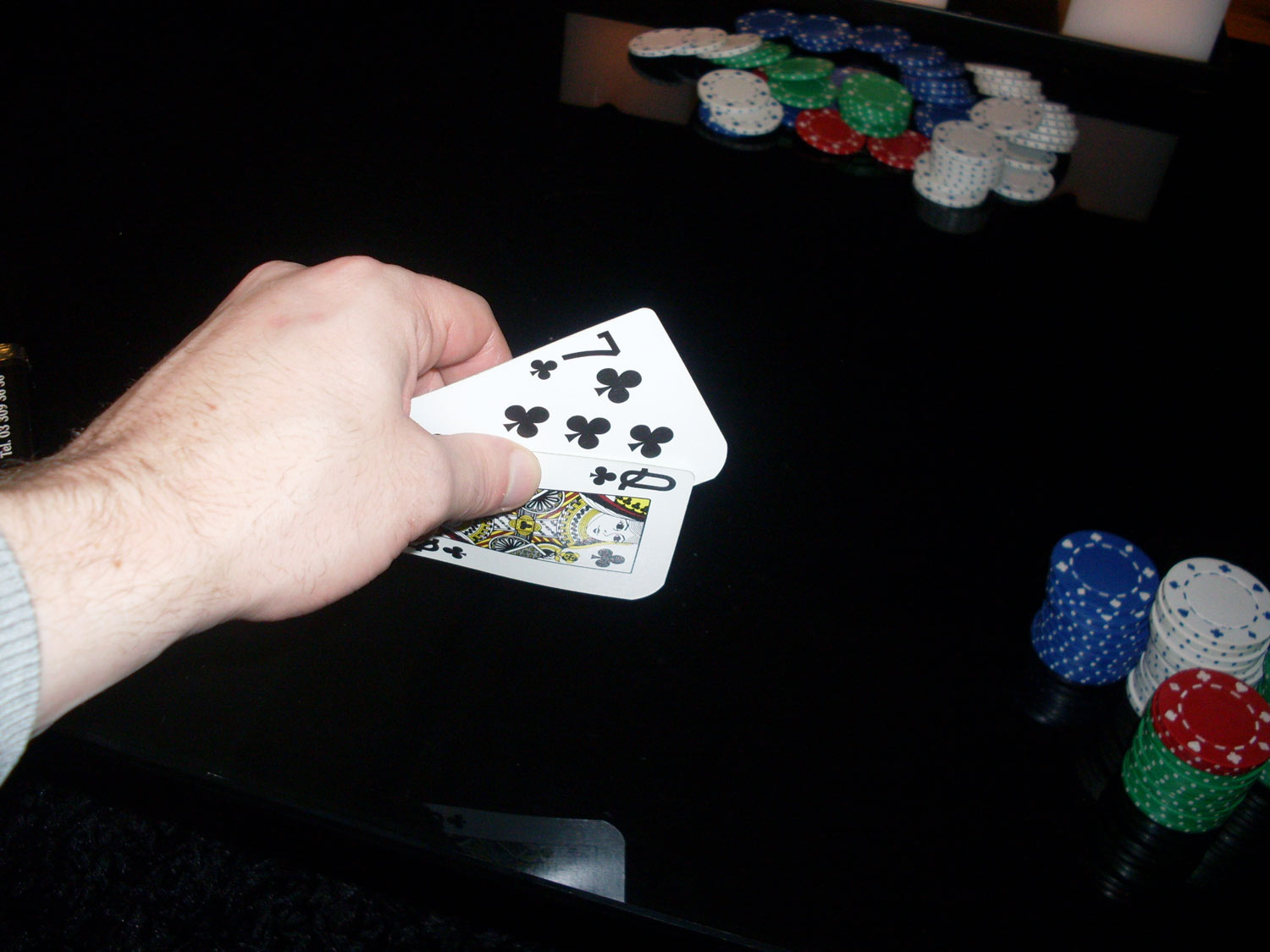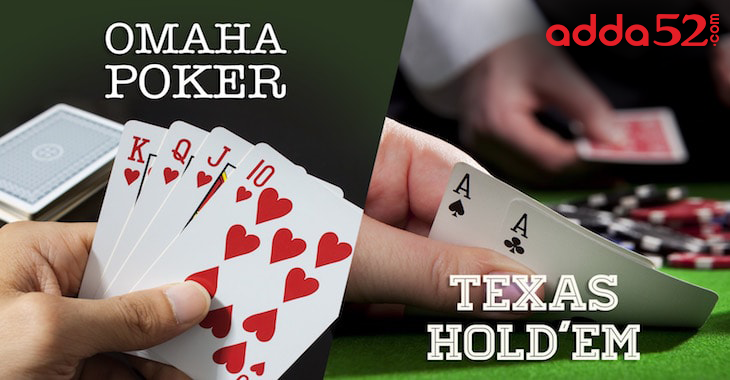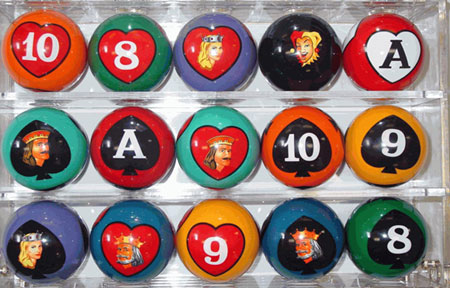Poker Oklahoma Rules
Official Omaha Poker rules by WSOP.com, learn how to play Omaha Poker and start playing online today! Understand the different types of betting, variations of the game. Omaha Poker is one of the popular games at the World Series of Poker. Oklahoma also refrains from legislating or interfering with the sacred rite of passage that is the home game. Whether it is through Friday night cards and beers amongst buddies from the office, or a game played via a legal online poker room in the comfort of a resident’s own home, Oklahoma has a deep love of poker. Craps are now live at Downstream Casino Resort. Craps: On the very first roll (the come-out roll) there is a marker about the size of a hockey puck in the middle of the table with the word “OFF” showing, the pass line wins on 7 or 11 and loses on 2, 3 or 12.
On Sunday night, I took a date to the Winstar Casino in Oklahoma to do some gambling. I’ve never really done much gambling there besides playing poker. We didn’t have much fun at the slots, which seemed tight, so we decided to try the table games.
We started with roulette and went on to play blackjack. I knew in a vague way that the Winstar (like other Oklahoma casinos) charges an ante when you place a bet. But this was the first time I’d spent much time at the tables paying that ante on every hand of blackjack and every spin of the roulette wheel.
Being a gambling writer who’s especially interested in the math behind the games, I started thinking about how to quantify what this ante does to the house edge.
Poker Oklahoma Rules Against
I had a math teacher in high school who insisted that I “show my work.”
That’s what I intend to do in this post. Calculate the house edge for the table games I played at the Winstar Casino, accounting for the antes.
What’s an Ante?
An ante is a forced bet, usually in poker, that drives action to the game. In the Native American casinos in Oklahoma, it’s an amount you put up in addition to your bet that the house keeps whether you win, lose, or push.
It would be more accurate to describe this so-called “ante” as a fee for playing a hand of blackjack or for betting on a spin of the roulette wheel. The casinos love to use euphemisms to make a bad deal seem slightly better, and using the word “ante” instead of “fee” is just an example of this.
This has the obvious effect of costing you the amount of the fee multiplied by the number of bets you make. Even if you’re winning, the fees add up. They could easily be the difference between a winning session and a losing session.
How the Roulette Ante Affects the House Edge
The first weird thing about playing roulette at the Winstar Casino is that they don’t have an actual roulette wheel. There’s an animated roulette wheel that drives the results. That wasn’t THAT weird for me; I’ve played at plenty of online casinos that did the same thing.
But the online casinos use a random number generator program to produce their roulette results. That’s a computer program that generates thousands of numbers per second. When you hit the “spin” or “bet” button at an online casino, the RNG stops on whatever number it’s “thinking of” at that millisecond.
The roulette games at the Winstar Casino don’t work that way. They have a dealer with a deck of cards. The dealer scans the playing card into a machine, then the animated roulette wheel spins and lands on the space that corresponds to the card that was dealt.
I have no reason to think that the probability of the underlying game had changed. It was a standard American roulette wheel on the giant TV screen above the table. It had 38 possible results, 2 of which were green (the 0 and the 00). 18 of those results were black, while the other 18 were red, and so on.
The table limits weren’t unusual, either. $5 minimum on the outside bets, with a $500 maximum bet.
But I had to pay a $1 fee (the so-called “ante”) every time they spun the wheel.
I didn’t even realize that was the case until the dealer told me to put up the extra dollar.
How did that affect the house edge?
Let’s start by assuming that we’re going to “spin the wheel” 38 times, and we’re going to get statistically perfect results. We’ll also assume that I bet on black every time.
This means that I’ll win $5 on 18 spins, and I’ll lose $5 on 20 spins.
On top of that, I’m going to lose $1 on each of the 38 spins.
I have $90 in winnings, and $100 in losses on the spins. Add $38 to my losses, and I wind up with a net loss of $48 over 38 spins.
That’s an average loss of about $1.26 per spin.
Since I’m basically putting $6 into action on every spin, an average loss of $1.26 per spin equates to an average loss of 21% of my bet.
That’s a lot higher than a 5.26% loss per spin.
In fact, that’s TERRIBLE.
Can You Do Anything to Lower the House Edge on the Roulette Games at the Winstar?
Here’s the thing:
I’m a low roller. (As you can imagine, gambling writers don’t make that much money.)
Poker Oklahoma Rules Game
But if you have a bigger bankroll than I do, you can lower the house edge by betting more each time they spin the wheel.
The fee for the roulette games (and the craps games, for that matter) at the Winstar Casino remains $1 regardless of whether you’re betting $5 per spin or $500 per spin.
What does that change the house edge to?
You do the math the same way, but the average losses as a percentage of the money you’re putting into action drop as you raise the size of your bets, as follows:
- If you’re betting $5 per spin, your average loss per spin is $1.26.
- If you’re betting $100 per spin, your average loss per spin is $6.26.
- If you’re betting $500 per spin, your average loss per spin is $27.32.
This means the house edge at each of these levels is:
- At $5, the house edge is 21%.
- At $100, the house edge is 6.2%
- At $500, the house edge is 5.45%.
Notice how at $500 per spin, the house edge is almost normal–normal being 5.26%.
But your sole goal shouldn’t be to get the house edge as low as possible. You should also consider your average cost of playing per hour.
The roulette games moved along at the Winstar at a good clip–about 50 spins per hour.
To calculate your average loss per hour, you multiply the number of bets per hour by the average size of your bet, and then you multiply that by the house edge.
For a $5 bettor, this means you’re putting $6 into action 50 times per hour, for $300 per hour in total action. With a house edge of 21%, you can expect to lose $63/hour.
For a $100 bettor, you’re putting $101 into action 50 times per hour, for $5050 in total action. With a house edge of 6.2%, you can expect to lose $313.10/hour.
For a $500 bettor, you’re putting $501 into action 50 times per hour, for $25,050 in total action. With a house edge of 5.45%, you can expect to lose $1365.23/hour.
The big difference is between the $5 and $100 mark–you’re betting 20 times as much per hand, but the difference in the house edge is so great that your expected losses only go up by a factor of 5.

You’ll need to decide for yourself how much an hour of roulette is worth to you, but keep in mind, too, that these are long term averages anyway. Even if you’re betting $5/hand, you could come out a winner in the short term.
In fact, even though a lot of gambling experts eschew the Martingale System, Michael Bluejay wrote an excellent page about how the system does increase your probability of having a small winning session in the short run. This will, of course, over time, be balanced out by some large losing sessions.
(The Martingale System worked well enough for me Sunday night that I broke even at the roulette tables.)
What about the Blackjack Ante?
I’m going to look at the blackjack math a little differently, but I also should point out that the ante rules for the blackjack games are different. The fee changes based on how much you’re betting, as follows:
- If you’re betting $5 to $99 per hand, the ante is 50 cents.
- If you’re betting $100 to $999 per hand, the ante is $1.
- If you’re betting $1000 to $1999, the ante is $2.
- If you’re betting $2000+, the ante is $3.
The first thing I’m going to do when calculating the house edge for the blackjack (including the fee) is to look at the game’s edge based on the rules in place. This also assumes you’re playing with perfect basic strategy.
As it turns out, the rules at the Winstar blackjack tables are excellent:
- They deal from 6 decks.
- The dealer stands on soft 17.
- No doubling after splitting.
- No surrender.
- You can double on any 2 cards.
With these rules in place, if you use perfect basic strategy, the house edge is only 0.56%.
But that’s not taking into account the 50 cent fee.
Here’s how we’re going to get to that number:
Let’s start with an expected hourly loss figure that doesn’t account for the ante.
When I was there, we only had an average of 3 players at the table–me, my lady friend, and usually one other person. (That person kept changing, but we hung in there for quite a while.)
According to the Wizard of Odds, I can expect 105 hands per hour at such a table. At $5 per hand, I’m putting $525 per hour into action.

Since I’m playing according to perfect basic strategy, my expected loss per hour just on the blackjack action (without the fee) is 0.56% of that, or $2.94/hour.
But I’m also losing 50 cents per hand to the fee. With 105 hands/hour, that’s another $52.50 in hourly losses. (I also get to add that to the hourly action.)
So with the fee, I’m wagering $577.50 and losing $55.40 of that.
That’s an effective house edge of 9.59%.
I don’t need to tell you that this has a terrible effect on what would otherwise be a great blackjack game.
What If You Increase Your Bet Sizes?
If you were paying attention during the roulette section, you probably already realize that if you raise the size of your bets, you can lower that house edge.
Let’s say you’re betting $99/hand instead. Now you’re putting $99 X 105 into action per hour, or $10,395. Your expected loss on that is $58.21.
You’re still paying $52.50 in fees, though, so your expected loss goes up to $110.71.
On total action of $10,447.50 in action, that’s a house edge of 1.1%.
Now that’s more like it. If you have the bankroll to afford this kind of action, it makes a lot of sense to bet $99/hand instead.
But here’s something interesting:
Watch what happens when you start betting $100/hand instead of $99/hand:
Your fee doubles. It’s now a dollar instead of 50 cents, which means that you now have $105 in hourly fees.
Your expected hourly loss besides that doesn’t change much. You’re putting $10,500 into action each hour instead of $10,447.50. Your expected loss on that is $58.80 instead of $58.21.
Add those together, and your hourly loss is $163.80 instead of $110.71.
So the house edge when you’re betting $99 is only 1.1%, but when you’re betting $100, it’s 1.54%.
If you really want to drop the house edge, though, just raise the size of your bets to $999.
$999 X 105 = $104,895
0.56% X $104,895 = $587.41
$587.41 + $105 = $692.41
$692.41/$105,000 = 0.65%
If you have the bankroll to afford that kind of action, it’s worth doing. You’ll find plenty of casinos in Las Vegas which don’t offer a house edge that low.

You might even be able to get an edge at this kind of game with a card counting strategy, although I suspect most people don’t have the bankroll for that. Also, I have a feeling–and I’ve read forum posts suggesting–that the security at the casinos in Oklahoma frown even more on blackjack advantage players than the casinos in Las Vegas do.
Conclusion
The fees (or so-called “antes”) for the roulette games and the blackjack games at the Winstar Casino in Oklahoma have a significant effect on the house edge.
In fact, if you’re a low roller, the best thing you can do is to avoid the roulette game altogether. If you do play roulette, try to avoid betting the minimum. Bet as much as you can comfortably afford, and remember that the house always wins in the long run anyway.

With the blackjack games, be careful with the amount you bet. The house edge can change dramatically between $99 and $100 per bet just because of the rising size of the fee.
You’ll find other posts in forums complaining about the antes at the casinos in Oklahoma. I’ll refrain from any histrionics here. You know what the deal is now, so if you want to play, that’s your business.
It does remind me of the old joke about the guy who plays in this lousy poker game. One of his buddies asks him, if the game’s so bad, why do you keep playing?
Because it’s the only game in town, he replies.